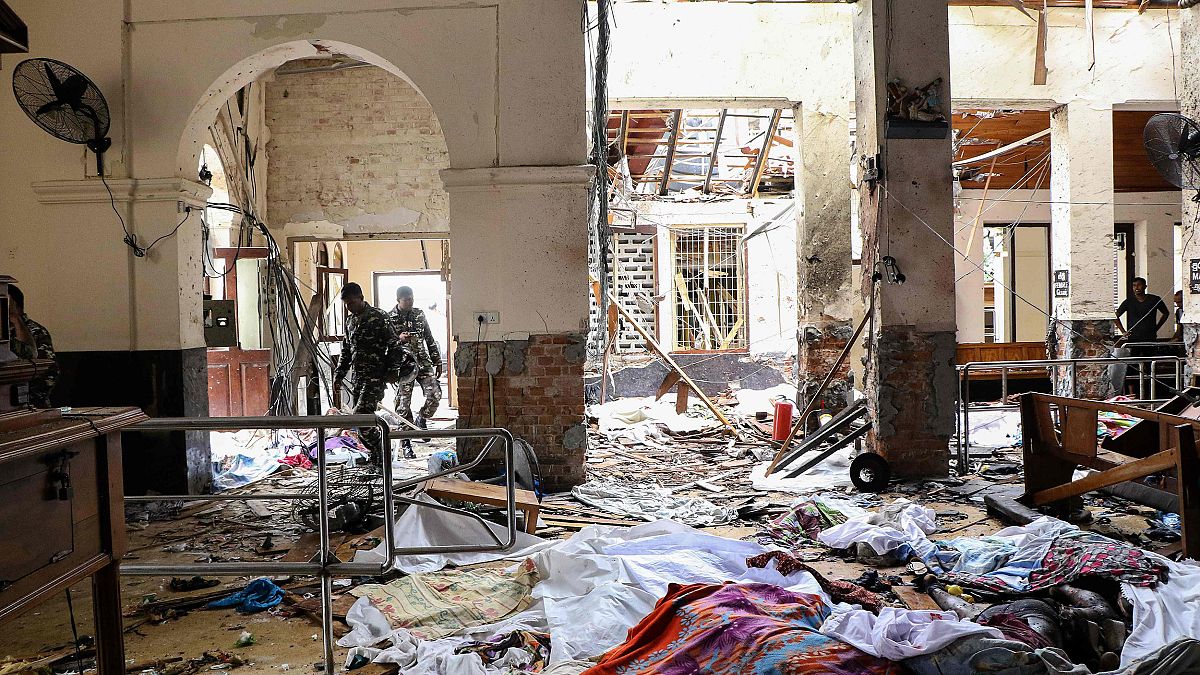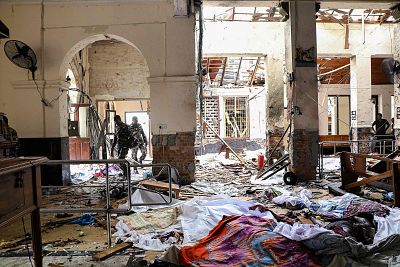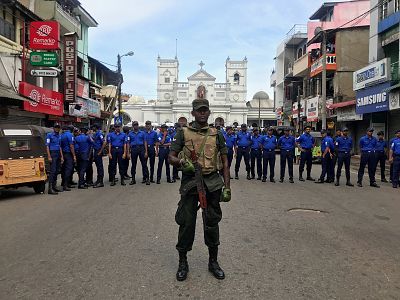"To recruit seven to 10 suicide bombers, that takes years of effort. That is reason alone to doubt it could have done so much damage by itself."
The international links of the little-known Islamist group blamed for a series of Easter Sunday suicide bombings in Sri Lanka were under the spotlight Tuesday amid questions about whether it was singlehandedly capable of orchestrating such a complex attack.Sri Lanka's government pointed the finger at National Thowheed Jamath (NTJ) for the near-simultaneous blasts at churches and hotels that killed at least 321 people in the predominantly Buddhist island nation off the southern tip of India.But the group wasn't on the radar of many Western terrorism and security experts prior to being accused of being behind the attacks on Monday. While it had been linked to vandalism of Buddhist statues, the NTJ had never previously been implicated in any deaths.There is also no history of tension between Christians and Muslims in Sri Lanka, with both minorities having been persecuted.
News
On Tuesday, the Islamic State group issued a claim of responsibility for the attack, but produced no evidence of its involvement and didn't identify any of the attackers.Health Minister Rajitha Senaratne previously said all of the bombers were Sri Lankans, but authorities said they strongly suspected foreign links.Defense Minister Ruwan Wijewardene told parliament on Tuesday he believed the attack was in retaliation to the shooting attacks on two mosques in New Zealand last month, without providing evidence or explaining where the information came from. The office of New Zealand's prime minister responded by saying it hasn't "seen any intelligence upon which such an assessment might be based."
The defense minister added that the NTJ had support from another local group, Jammiyathul Millathu Ibrahim.Champa Patel, the head of the Asia-Pacific program at London's Chatham House think tank, questioned whether the Sri Lankan groups could have acted alone."It's hard to believe that any of these small groups would have been able to put an attack of such complexity that would require careful logistical planning, months of preparation, without support from foreign interests," Patel said.The Tamil Tigers, a powerful rebel army known for using suicide bombers during the 26-year civil war that ended in 2009, had little history of targeting Christians.World news
Anti-Muslim bigotry fed by Buddhist nationalists has swept the country recently, but there is no history of Islamist militancy. Sri Lanka's small Christian community also has seen only scattered incidents of harassment.Around 70 percent of the country's population of 22 million are Buddhist. Muslims make up only 9.7 percent of the population while Christians are another 7.6 percent, according to the country's 2012 census.The fact that Christians and tourists were targeted — as opposed to Buddhists — also potentially suggests an international terrorism dimension to the attack, according to Patel.
"Whoever the attackers are, if they were feeling disenfranchised or stigmatized, you would assume they would attack the majority community," Patel added.Richard Pape, director of the Chicago Project on Security and Threats, said that overseas groups may have provided information on planning mass-scale attacks to the NTJ, which had local knowledge."This is a group that has gone from zero to 60 in its first attack," said Pape, who has studied every suicide attack on Sri Lanka since 1987 and is the author "Dying to Win: The Strategic Logic of Suicide Terrorism."He added: "To recruit seven to 10 suicide bombers, that takes years of effort. That is reason alone to doubt it could have done so much damage by itself."The Tamil Tigers launched more than 130 suicide bomb attacks during the country's civil war, making them the leading militant group in such assaults at the time. They killed a Sri Lankan prime minister and a former Indian prime minister, among others, including bystanders.On Monday, Sri Lanka's government admitted that international intelligence agencies had informed its security agencies on April 4 that churches and tourist destinations were being targeted. Five days later, police were given the names of suspects behind the plot."We never expected it to be so big," Hemasiri Fernando, the chief of staff to Sri Lankan's president, told NBC News "We never thought it would happen so soon."


